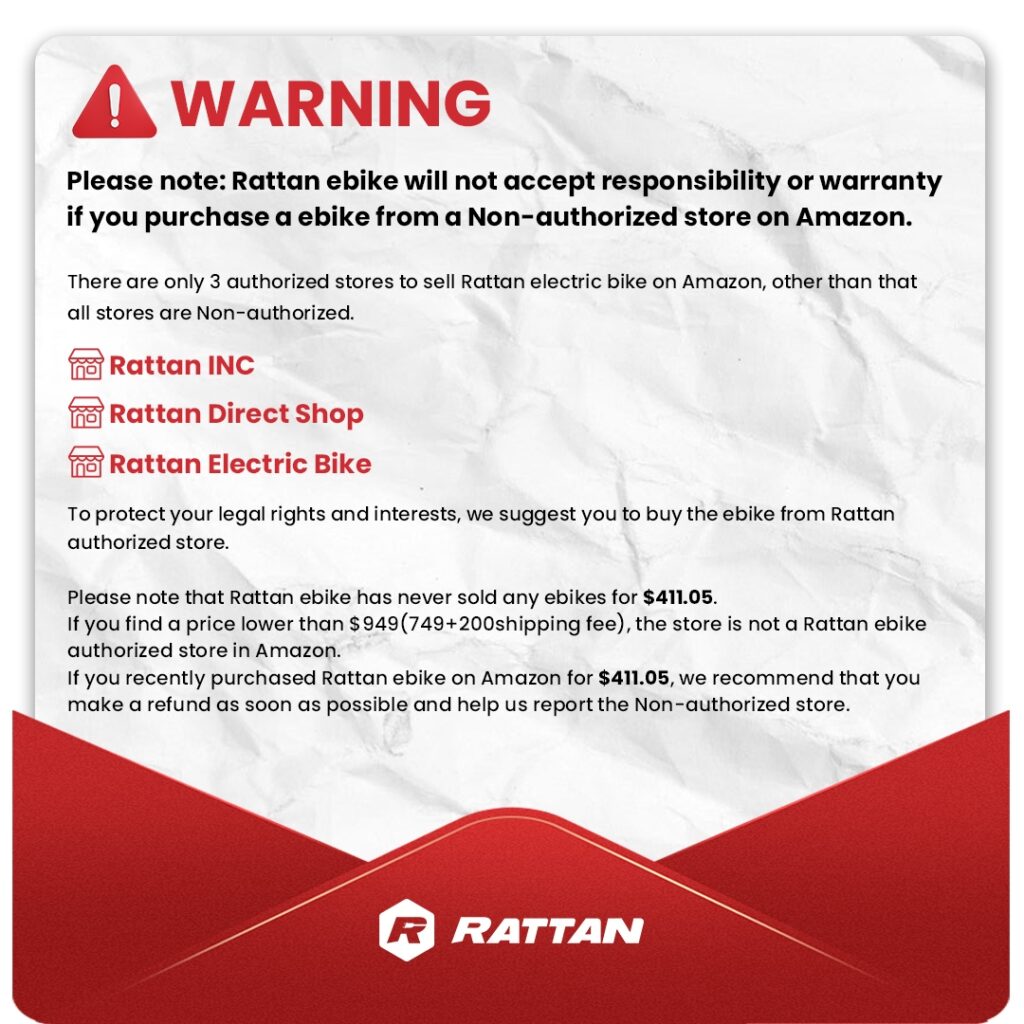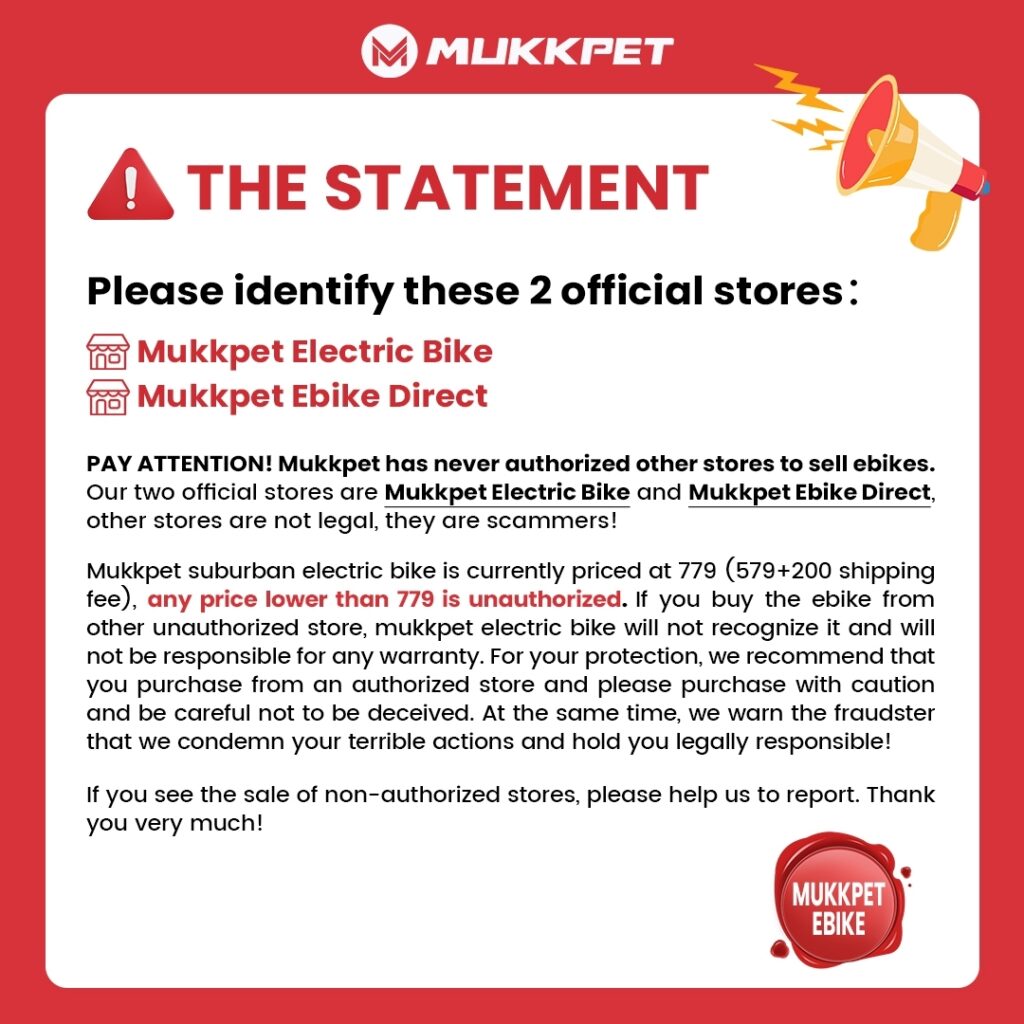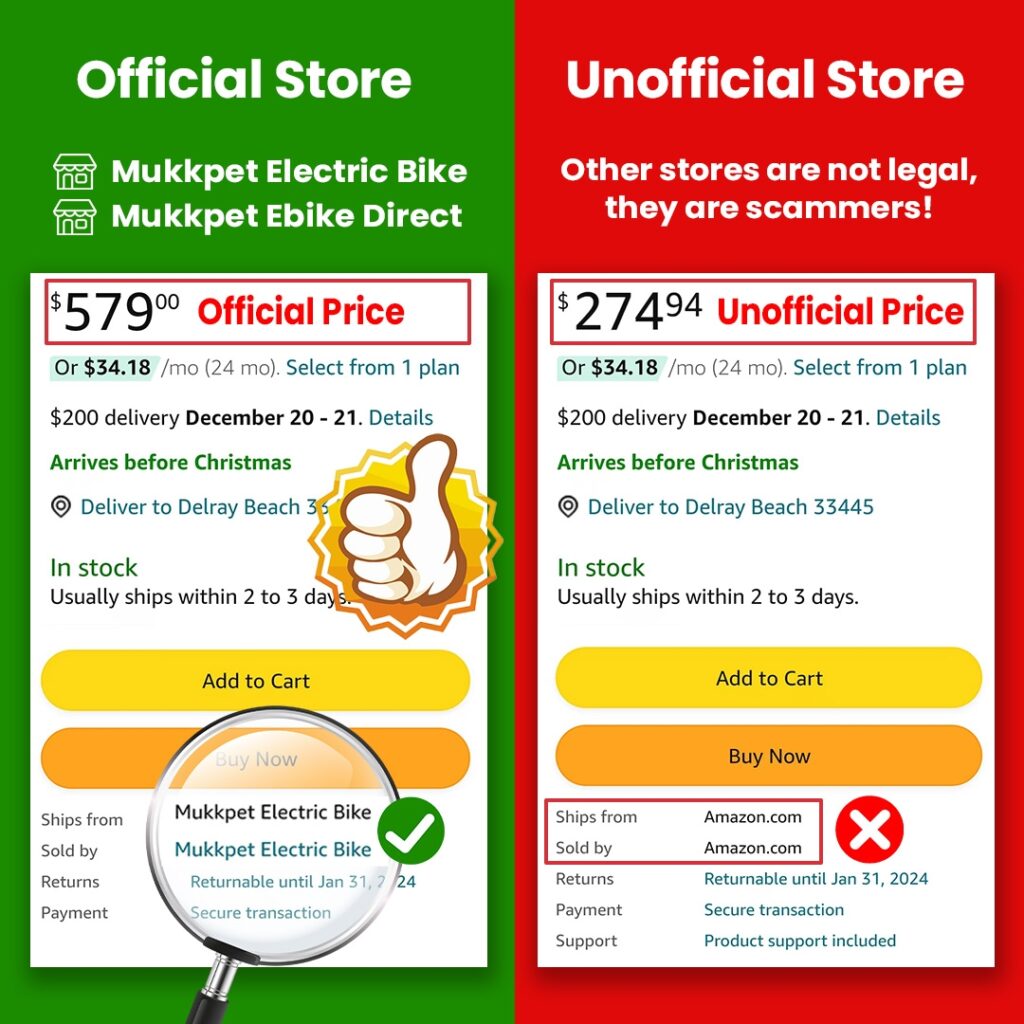If the price is too good to be true, be wary of cheap ebikes on Amazon. Both Mukkpet and the folks at Rattan ebikes recently informed me of scammers trying to sell their ebikes at rock bottom prices. It’s a good reminder to be careful. Amazon does remove scammers when they find them but its a big game of wack-a-mole at times.



Avoiding ebike scam sellers on Amazon takes a bit of vigilance, but there are ways to shop with confidence. Here are my key tips:
Who’s selling?
- Buy from the brand or manufacturer: Whenever possible, stick with trusted names. This minimizes the risk of counterfeits or inferior goods.
- Look for “Sold by” information: Always check who’s selling the product. Amazon itself sometimes sells directly, indicated by “Sold by Amazon.com.” Third-party sellers will have their own names listed.
- FBA can be a bad sign: While not guarantees, “Fulfilled by Amazon” (FBA) can sometime prove fraudulent.
- Beware of new sellers: A seller with few ratings or a recent launch date could be a red flag. Proceed with caution if they offer suspiciously low prices.
Check the seller’s feedback:
- Read the details: Don’t just look at the star rating. Read actual reviews, especially verified purchases, for insights into customer experiences.
- Beware of suspiciously positive reviews: A sudden surge of glowing reviews, especially around launch time, could be a sign of manipulation.
- Look for negative feedback patterns: Consistent complaints about quality, service, or delivery should raise concerns.
Scrutinize the product listing:
- Unrealistic prices: If the price seems too good to be true, it probably is. Be wary of deals significantly lower than other sellers or the brand’s website.
- Vague descriptions or photos: Unclear product descriptions or low-quality, generic photos could indicate an attempt to hide poor quality.
- Check for typos or grammatical errors: Professional sellers generally have polished listings. Frequent errors might suggest a less reputable operation.
General safety practices:
- Stick to the Amazon platform: If a seller asks you to move communication off-site, like email, phone, or even text, decline and report them.
- Never share personal information: Amazon will never ask for sensitive details like bank passwords or social security numbers. Be cautious of any suspicious requests.
- Report anything suspicious: If you encounter a potential scam, report it to Amazon through their customer service channels.
By following these tips, you can significantly reduce your chances of encountering scam sellers on Amazon. Remember, if something seems too good to be true, it probably is. Trust your gut and prioritize reputable sellers and transparent listings for a safer and more enjoyable shopping experience.
